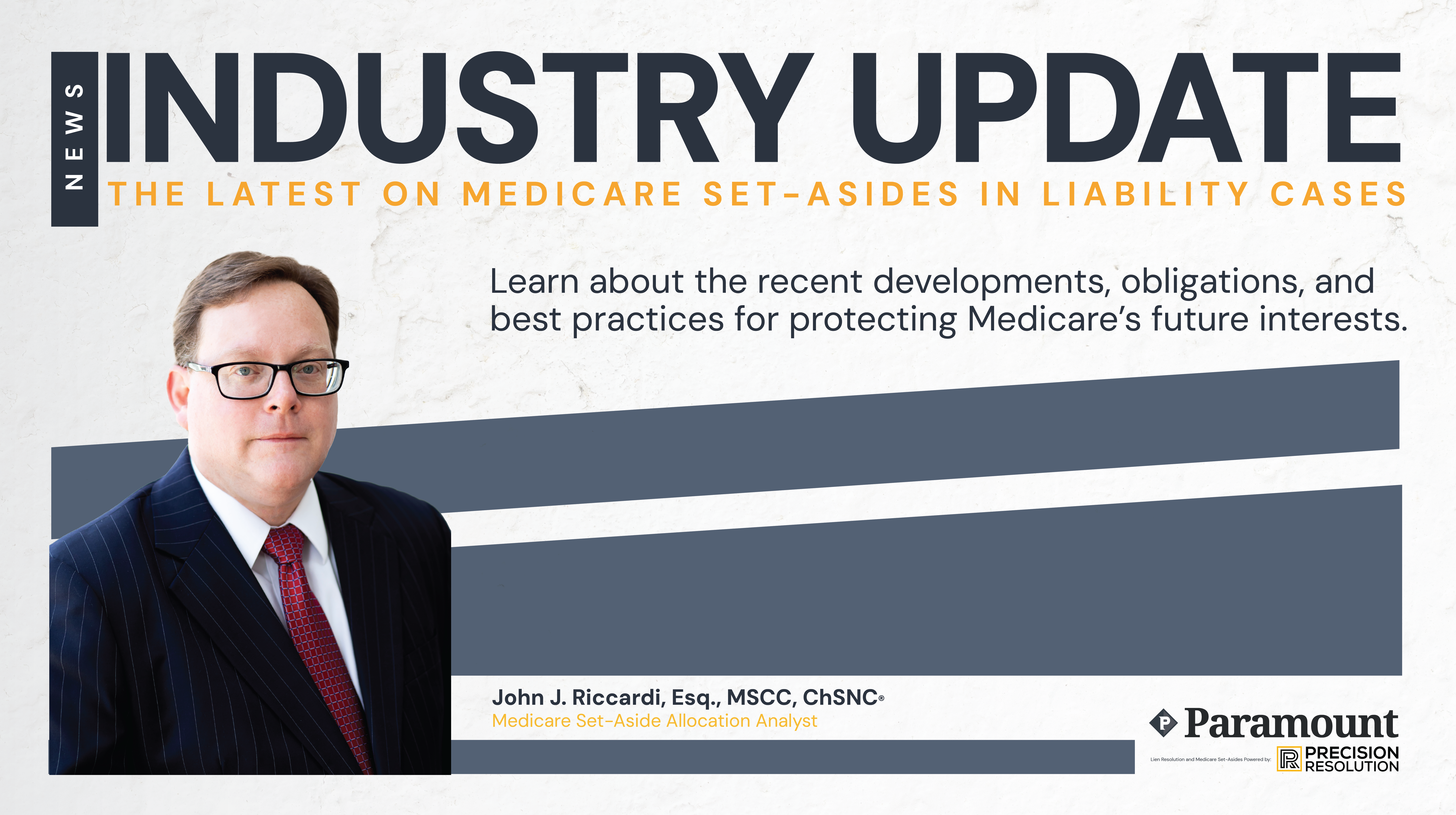
Medicare Set-Asides (MSAs) continue to be a significant area of confusion and concern for plaintiffs’ attorneys dealing with liability settlements. Since the enactment of the Medicare, Medicaid, and SCHIP Extension Act (MMSEA) on Dec. 29, 2007, the utilization of MSAs in liability cases has led to widespread uncertainty. Here, we provide an updated overview of the current state of MSAs in liability cases as of 2025, shedding light on recent developments and clarifying the obligations and best practices for protecting Medicare’s future interests.
What is a Defendant’s Exposure for Future Medicare Expenses?
It remains clear that there is no statutory or regulatory mandate requiring the establishment of MSAs in liability settlements. The Medicare Secondary Payer Manual explicitly states that there should be no recovery of benefits for services rendered after the date of a liability insurance settlement. This position has been consistently upheld in case law and affirmed by CMS itself. The defense has no exposure for any such future accident-related medical expenses covered by Medicare.
Key Case Law
Several precedential federal court decisions support the lack of any mandate for liability MSAs. Notable cases include:
- Sipler v. Trans Am Trucking Inc.: The Court reiterated that no federal law requires set-aside arrangements in personal injury settlements for future medical expenses.
- Bertrand v. Talen’s Marine & Fuel LLC: This case highlighted that CMS does not require or approve MSAs for personal injury lawsuit settlements.
- Bruton v. Carnival Corp.: The Court confirmed that there is no legal requirement to include a MSA trust account in personal injury lawsuit settlements.
These cases reinforce that, while preparing an MSA might be prudent, it is not legally mandated.
What are the Risks to Plaintiffs?
Although there is no formal requirement to establish MSAs, plaintiffs and their attorneys should consider the potential risks. The Medicare Secondary Payer (MSP) statute empowers CMS to deny coverage if it determines that an injured plaintiff has been compensated for future medical expenses through a liability settlement. This could leave injured plaintiffs without coverage for future accident-related medical expenses. This is particularly concerning for those who are Medicare eligible and cannot otherwise obtain coverage through the Affordable Care Act (ACA).
Best Practices for Plaintiffs’ Attorneys
To protect their clients and themselves, plaintiffs’ attorneys should:
- Assess the Need for an MSA: While not required, establishing an MSA can protect future Medicare coverage for claim-related expenses. This assessment focuses on whether a plaintiff enrolled in Medicare will require further accident-related medical treatment. If such future medical treatment is reasonably foreseeable, it may be prudent to further document the manner in which Medicare’s interest have been protected in the settlement.
- Document Settlement Details: Clearly document whether the settlement includes payment for future medical expenses. Obtain attestations from treating physicians if no future treatment is anticipated. If appropriate, have a formal MSA Allocation prepared.
- Client Education: Ensure clients understand the potential risks of losing Medicare coverage for future medical expenses if an MSA is not established in writing If a formal MSA Allocation has been prepared, education the client on the proper administration as to the MSA funds.
CMS and the Future of Liability MSAs
At the recent National Medicare Secondary Payer Network Annual Educational Conference held in September 2024, representatives from CMS indicated at that time that no further guidance in the Liability MSA workspace was on the horizon. However, CMS may reconsider this position as the aftermath of the 2024 Presidential election. Nevertheless, CMS still retains the ability to deny the payment of future accident-related expenses covered by Medicare under the Medicare Secondary Payer statute based upon the settlement of a liability claim.
Navigating with Caution
As of 2025, the landscape of MSAs in liability cases remains evolving, but the lack of a statutory mandate for MSAs continues. Plaintiffs’ attorneys must navigate this uncertainty with caution, ensuring they take appropriate steps to protect their clients’ future Medicare medical coverage. By staying informed about any new regulatory changes and adhering to best practices, attorneys can effectively manage the risks associated with MSAs and liability settlements.
